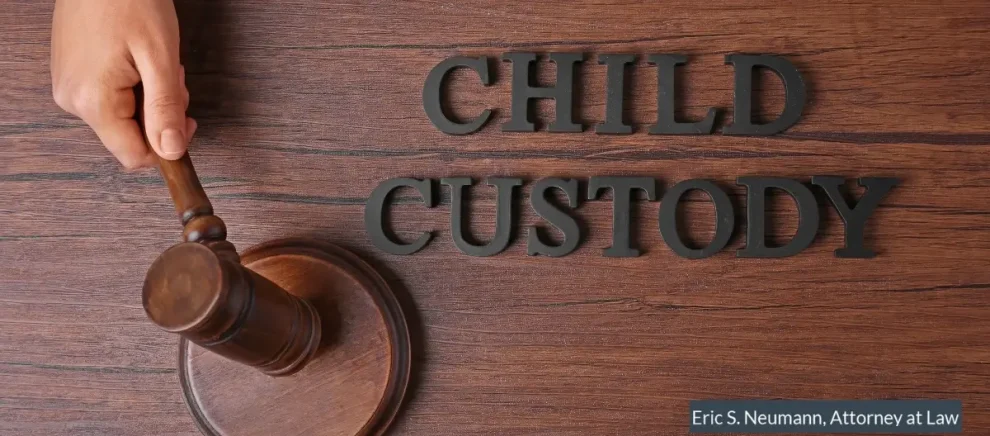|
|
Last
Modified on
Jun 03, 2025
Children need consistency, even if a family doesn’t stay together. Louisiana child custody laws help courts decide where a child lives. Parents have lots of questions during these cases. Knowing the basics can help you figure out what’s next.
Types of Custody
Louisiana has both legal and physical custody. Legal custody provides parents the right to make decisions about their child’s life. Physical custody decides where the child lives most of the time.
Joint custody means both parents share legal custody. That doesn’t always mean equal time. One parent may still have more nights with the child. Sole custody means one parent handles both decisions and physical care. The other parent may still have visitation rights.
Courts often prefer joint custody. But a parent’s history can change that. Things like criminal charges can lead to supervised visits. It can even lead to a loss of rights entirely.
False claims during custody fights also come up. One parent might try to use a false claim to cut the other out. That claim needs to be defended early.
How Courts Decide Custody
Courts decide custody based on what is in the child’s best interest. Judges don’t follow one rule. They figure out what matters most in each case. Common elements include:
- The child’s relationships. Courts prefer not to disrupt a child’s life unless it’s necessary. 6% of the population enrolled in schools in Louisiana are in kindergarten through 12th grade. These community ties can help one parent’s case.
- Parental health. 2% of Louisiana residents are disabled. These health problems can limit a parent’s ability to care for a child. That can shift the court’s decision. This includes substance abuse.
- History of violence. A record of abuse can lead to no contact. False claims in this area also cause harm. An attorney can challenge those claims before they affect custody.
- Child’s wishes. In some cases, older children can speak with the judge. Their opinion does not control the outcome. If it’s backed by facts, their input can matter.
- Co-parenting abilities. Courts look at whether parents can work with each other. A parent who refuses to cooperate may lose favor. This is true even if other parts of their case look strong.
Custody decisions are made with the interests of the child in mind. It is important to understand that the court views the parents as having a joint obligation to ensure the child’s needs are met. Too often, parents let personal issues come between their priority as parents and the personal feelings of the other parent.
Visiting Rights
Even when one parent has full custody, the other parent can still get visitation. The schedule varies from person to person. The court can change the schedule if necessary to better meet the child’s needs.
If a parent has a criminal record, the court may require supervised visitation. That means someone else must be present. This keeps the child safe during contact.
Modifying Custody Orders
Custody orders can change at the request of either parent. However, they must show that there is a change in circumstances. The court won’t revise a custody order without a reason.
Significant changes like a new job may count. The median household income in Louisiana is $58,229. Changes to this income might require a change in the custody order.
Proof that the current plan hurts the child can also support a change. The parent must show that the new arrangement serves the child better.
Unique Considerations
Custody cases could face several complications depending on the circumstances of the individuals involved. Allegations of misconduct can shift a case fast. Often, these claims require extensive investigations and are not taken lightly by Louisiana courts.
In custody fights, false claims often appear. One parent may try to gain control by accusing the other of abuse. That can include claims of sexual harm. These accusations demand a defense. Without one, they can cost a parent time with their child.
Another issue is relocation. This can apply if one parent wants to move out of Louisiana. This can affect the other parent’s rights. The court may stop the move. They could also change custody terms.
Why Do I Need an Attorney?
These cases don’t need to be faced alone. With the help of a knowledgeable and experienced attorney, you can successfully navigate your custody challenges. An attorney can help with many of the following aspects of a custody case:
- Representing you in any mediation, litigation, or arbitration that is required
- Securing evidence and documents to support or refute any claims
- Ensuring deadlines are appropriately met
- Working in partnership with you to ensure the interests of you and your child are a priority
These are just a few of the ways that an attorney can help in your Louisiana custody battle. When you hire an attorney, you should ensure that you are comfortable, feel you can be honest, and have a level of trust with them. It is always recommended to do your research by reading online reviews, speaking with community members about their reputation, and interviewing potential lawyers to ensure they are aligned with your needs or beliefs.
FAQs
How Is Child Custody Determined in Louisiana?
Child custody is determined in Louisiana based on what’s good for the child. The court looks at the full picture. That includes each parent’s relationship with the child. Past behavior also plays a part. Judges must decide which parents can give the child what they need on a daily basis.
What Rights Does a Father Have in Louisiana?
The rights a father has in Louisiana are the same as those of a mother. Courts no longer assume that children belong with the mother by default. It’s important for a father to show that they are active in the child’s life. This can help him ask for custody. Fathers who face false claims need to act to keep custody.
Who Has Sole Custody of a Child in Louisiana?
The sole custody of a child in Louisiana is somewhat uncommon. Sole custody means one parent makes all decisions about the child. The child usually lives with that parent full-time. This is only done if joint custody does not support the child. That can happen when one parent poses a risk to the child’s safety.
Do You Have to Pay Child Support if You Have 50/50 Custody in Louisiana?
You might have to pay child support if you have 50/50 custody in Louisiana. Courts don’t just look at time spent. They also look at both parents’ incomes. The amount depends on the gap between incomes. Shared custody doesn’t cancel out support. Claims of abuse can also lead to one parent getting less time. This can affect support amounts.
Louisiana Custody Lawyer
There are strong emotions associated with custody. Families can find stability with the right support. Courts look out for children. An attorney can also help find a fair outcome. Schedule a consultation with Eric S. Neumann, Attorney at Law, to speak with a member of our team and find out how we can help.




